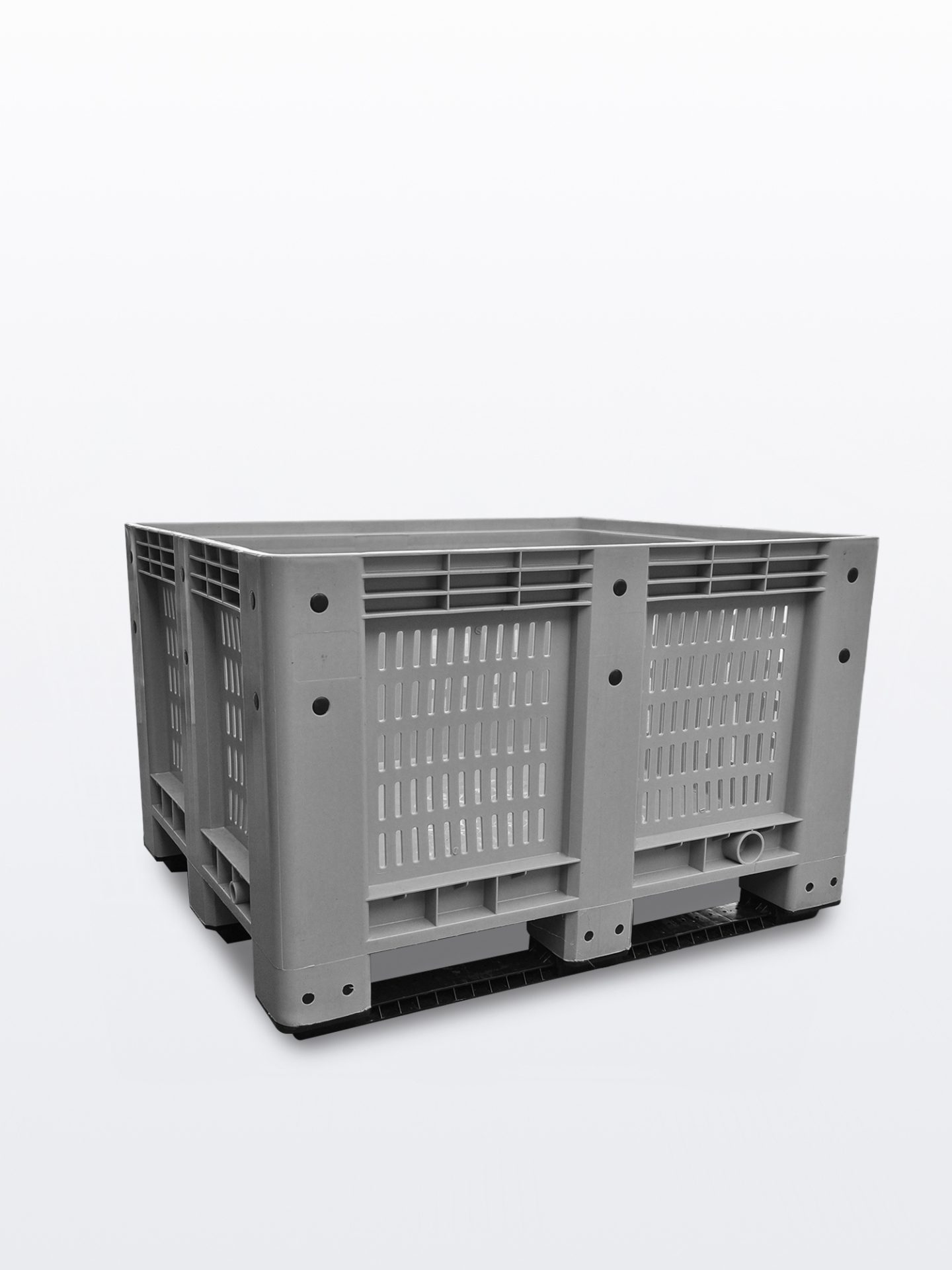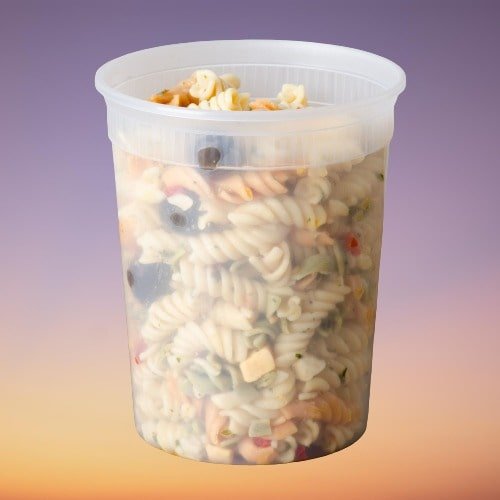A Comprehensive Guide to the Different Types of Mass Plastic Containers Available Today
Bulk plastic containers play an important role in numerous markets, providing services for storage and transportation. Their varied kinds cater to different needs, from inflexible options for solid materials to flexible containers fitting various forms. Each type offers distinct benefits, making it necessary to recognize their applications and features. As sectors evolve, so do the demands for effective container options. What factors should one take into consideration when choosing the ideal mass container?
Introduction of Bulk Plastic Containers

Kinds of Bulk Plastic Containers
Mass plastic containers can be found in numerous forms, each fit to specific applications. Inflexible bulk containers, versatile bulk containers, and intermediate mass containers represent the main groups, each offering one-of-a-kind benefits. Recognizing these kinds is essential for picking the best container for delivering and keeping materials.

Stiff Mass Containers
Inflexible bulk containers are critical for efficient storage space and transportation of different materials throughout industries. These containers are generally constructed from long lasting plastics, allowing them to withstand severe handling and ecological problems. They come in numerous sizes and shapes, including drums, totes, and containers, making them ideal for keeping everything from granular compounds to fluids. Stiff containers typically include strengthened walls and secure covers, ensuring the components stay shielded during transit. Their stackable design makes best use of storage space, making them perfect for stockrooms and making facilities. Furthermore, lots of inflexible bulk containers are recyclable and recyclable, adding to sustainability efforts. Generally, their robustness and flexibility make inflexible bulk containers a vital component in supply chain operations.
Flexible Mass Containers
Versatile mass containers, typically described as adaptable intermediate mass containers (FIBCs), function as a flexible remedy for keeping a variety and delivering of dry materials. These containers are generally made from woven polypropylene and are designed to be lightweight yet solid, enabling efficient handling and piling. Their versatility enables them to accommodate numerous forms and sizes, making them suitable for products ranging from grains to chemicals. FIBCs can be geared up with functions such as spouts for simple dental filling and discharge, as well as protective coatings for improved sturdiness. In addition, they are reusable and recyclable, adding to sustainable practices in sectors such as farming, food handling, and construction. Overall, versatile bulk containers use a effective and cost-efficient choice for bulk product management.
Intermediate Bulk Containers
Intermediate bulk containers (IBCs) are essential for the efficient transportation and storage of liquids and granular materials across numerous sectors. These containers usually have a capability varying from 275 to 330 gallons and are designed for very easy piling and handling. Made from resilient products like high-density polyethylene or steel, IBCs offer outstanding protection versus contamination and ecological factors. Their style includes functions such as a built-in pallet for forklift accessibility and a removable top for simple filling and cleansing. IBCs are extensively used in chemical, food, and pharmaceutical industries, making certain compliance with security guidelines. Their flexibility and reusability make them a cost-efficient solution for bulk storage space and transportation, adding to provide chain efficiency and sustainability.
Attributes and Benefits of Bulk Plastic Containers
Mass plastic containers are necessary tools in various sectors, offering a mix of sturdiness and functionality. These containers are built from high-grade materials, making them immune to impacts, chemicals, and ecological variables. This effectiveness assurances item safety and security during storage space and transportation.
Furthermore, bulk plastic containers are light-weight, helping with simplicity of taking care of and minimizing shipping prices. Their stackable design optimizes storage efficiency, permitting optimized stockroom area. Several designs include safe covers or closures, supplying an airtight seal that preserves contents and protects against contamination.
Moreover, mass plastic containers are usually recyclable and recyclable, adding to lasting methods. Their adaptability permits a large array of applications, from food storage to industrial use, boosting their value across fields. Organizations benefit from the long lifespan and reduced upkeep requirements of these containers, making them a cost-effective service for both short-term and long-term needs.
Industries That Make Use Of Mass Plastic Containers
Numerous markets take advantage of the use of mass plastic containers, YOURURL.com each leveraging their one-of-a-kind homes for particular applications. The food our website and beverage sector depends on these containers for risk-free storage and transportation of items, while the chemical manufacturing industry utilizes them for managing unsafe products. Furthermore, the pharmaceutical distribution needs emphasize the importance of sturdiness and sanitation in product packaging remedies.
Food and Drink Industry
As the need for risk-free and reliable storage space services remains to increase, the food and drink market progressively counts on mass plastic containers for their operational demands. These containers give durable, light-weight, and functional choices for storing active ingredients, completed items, and waste products. Made from food-grade materials, they guarantee compliance with health and wellness standards. Numerous styles, such as stackable containers and carry boxes, optimize room throughout transport and storage space, enhancing logistical performance. Additionally, the openness of some mass containers permits very easy inventory management, decreasing the threat of perishing. With the industry's concentrate on sustainability, numerous suppliers are currently using multiple-use and recyclable options, straightening with environmentally friendly practices while satisfying the high demands of food safety and health.
Chemical Production Industry
The chemical manufacturing sector counts greatly on bulk plastic containers for the secure and reliable storage space of resources, intermediates, and finished items. These containers are developed to endure different chemicals, ensuring that unsafe materials do not leakage or degrade the container itself. Usual types include high-density polyethylene (HDPE) and polypropylene containers, which offer excellent chemical resistance and durability. Their light-weight nature and stackable design facilitate transport and storage, optimizing space in making facilities. Additionally, many mass plastic containers feature functions such as tamper-evident seals and easy-to-read labeling, improving security and compliance with market guidelines. On the whole, bulk plastic containers are indispensable to the chemical production process, providing reputable services for taking care of varied compounds.
Drug Distribution Requirements
Pharmaceutical circulation counts on mass plastic containers to satisfy rigid security and regulatory demands. These containers are crucial for keeping a range and transferring of pharmaceutical items, consisting of energetic pharmaceutical active ingredients (APIs) and completed drugs. Their style guarantees security versus contamination, dampness, and light, maintaining the stability of sensitive materials. In addition, mass plastic containers are compliant with market criteria such as Excellent Production Practices (GMP) and are typically made from products that are FDA-approved. The usage of these containers improves performance in the supply chain, permitting safe, large distribution while reducing waste. Firms in the pharmaceutical sector focus on using durable, watertight, and tamper-evident containers to guarantee product security and top quality throughout the logistics procedure.
Considerations for Selecting the Right Container
When picking the suitable mass plastic container, various aspects should be carefully weighed to ensure suitable performance and security. The nature of the materials to be stored is paramount; compatibility with the container's material can affect stability and safety. bulk plastic containers for sale. Furthermore, the container's dimension and shape must line up with the storage and transportation needs, assuring effective room application
Tons capability is another essential consideration, as it must suit the weight of materials without danger of damages or failure. The layout attributes, such as venting or covers, can impact use and gain access to. Conformity with market guidelines is crucial, especially in fields like pharmaceuticals, where safety and security requirements are rigorous.
Ultimately, the anticipated life-span and resilience of the container must be examined to validate it fulfills the operational demands without constant replacement. By reviewing these variables, one can select one of the most look at here ideal bulk plastic container for details applications.
Environmental Effect and Sustainability
As businesses significantly focus on sustainability, the environmental influence of mass plastic containers has actually come under analysis. These containers, typically made from materials such as polyethylene or polypropylene, add considerably to plastic waste otherwise handled properly. Their production involves the intake of nonrenewable fuel sources, which can bring about raised greenhouse gas discharges. Developments in recycling modern technology and the growth of biodegradable options are aiding to reduce these problems.
Moreover, many makers are embracing methods that stress using recycled materials, thereby reducing the need for virgin plastics. The resilience of mass plastic containers likewise contributes; they are made to be recycled multiple times, which can minimize their overall ecological impact when contrasted to single-use choices. Ultimately, the sector deals with the challenge of stabilizing capability with ecological responsibility, making sustainable methods vital for the future of bulk plastic containers.
Ideal Practices for Storage and Transport
Reliable storage and transport of bulk plastic containers considerably influence both operational efficiency and sustainability. To make best use of space, organizations must stack containers safely, assuring stability and stopping damage. Appropriate labeling is important for easy recognition, which streamlines access procedures. Furthermore, keeping a well organized and clean storage area lowers the threat of contamination and enhances security.
For transportation, selecting the best car is vital; containers ought to be protected to avoid changing during transit. Business must likewise take into consideration making use of pallets to assist in less complicated loading and discharging. Normal evaluations of containers for wear and tear can avoid costly substitutes.
Temperature level control is one more vital facet, as severe conditions can endanger the stability of the plastic. Training workers on ideal methods for handling and transportation warranties compliance and advertises a culture of security. By applying these best practices, organizations can enhance their operational performance while adding to environmental sustainability.
Regularly Asked Questions
How Do I Tidy Mass Plastic Containers Successfully?
To tidy mass plastic containers efficiently, one need to wash them with cozy water, make use of a mild detergent and scrub with a soft brush. Wash completely, then enable to air completely dry completely before storage or reuse.
What Is the Life-span of Bulk Plastic Containers?
The life-span of mass plastic containers normally ranges from 5 to one decade, depending upon the product, usage, and ecological conditions. Correct upkeep and storage can substantially extend their usability and durability gradually.
Can Mass Plastic Containers Be Customized?

Do Bulk Plastic Containers Have Warranty Options?

Exist Laws for Utilizing Mass Plastic Containers?
Yes, laws exist for utilizing mass plastic containers, mainly concentrated on safety, ecological influence, and material compliance. These guidelines ensure that containers fulfill industry criteria and are appropriate for transferring various compounds securely and successfully.
Inflexible bulk containers, flexible mass containers, and intermediate mass containers represent the main groups, each offering unique benefits. Adaptable mass containers, commonly referred to as versatile intermediate mass containers (FIBCs), offer as a versatile option for saving a variety and moving of dry materials. The chemical manufacturing field relies greatly on mass plastic containers for the reliable and safe storage of raw products, intermediates, and completed items. Bulk Plastic Containers. These containers are created to withstand different chemicals, making certain that harmful products do not leak or degrade the container itself. In addition, mass plastic containers are compliant with market requirements such as Excellent Production Practices (GMP) and are often made from materials that are FDA-approved